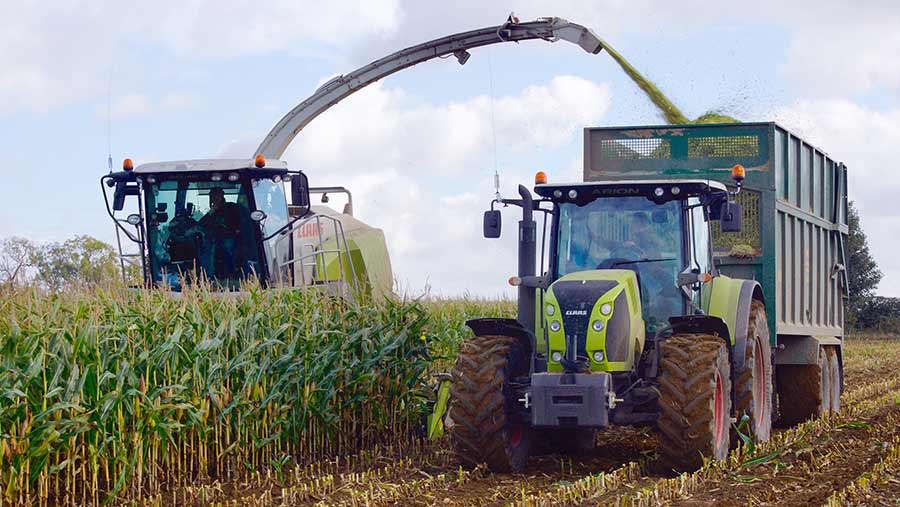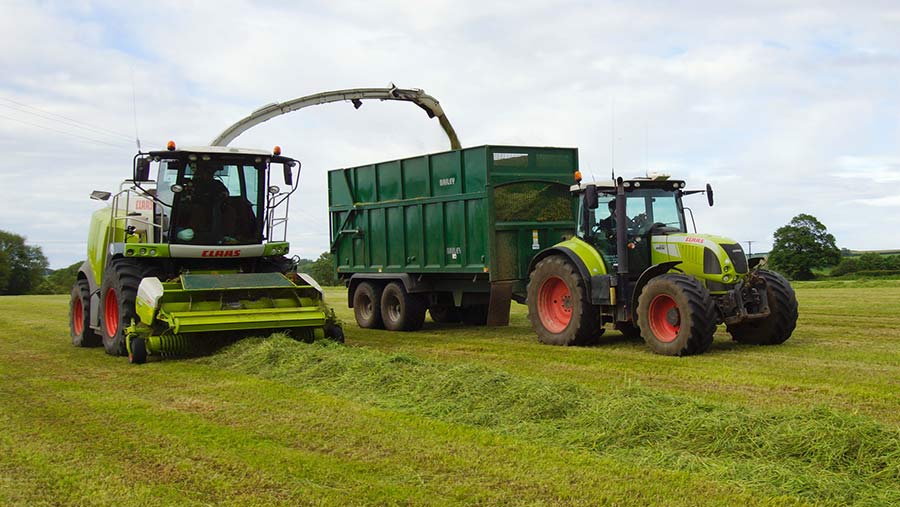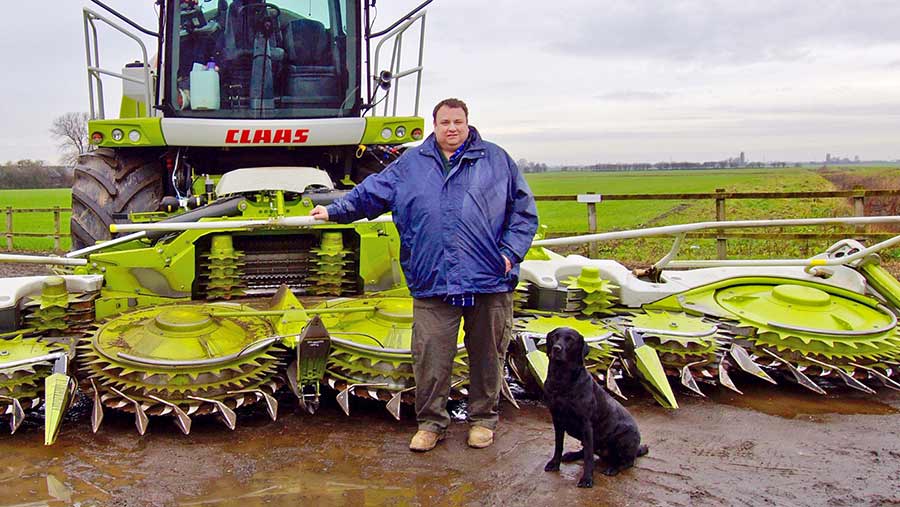AD firm urges contractors to charge higher, sustainable rates

AD plant management firm Future Biogas has taken the unusual step of encouraging the contractors it employs to charge sustainable rates in order to build a long-lasting and performance-focused relationship.
This outlook differs from most businesses in the agricultural contracting sector, where competition is fierce and undercutting rivals is standard practice.
However, aggressive pricing often leads to a downward spiral of debt and an inability to reinvest. As a result, many businesses fall by the wayside and farmers can find it hard to retain ongoing contracting partnerships.
This is highlighted by the annual prices published by the National Association of Agricultural Contractors (NAAC) that show a 2-3% rise in contracting prices over the past year, versus machinery costs that have climbed by 7-9%.
By setting prices based on a quality of service, carefully calculated costings and a sustainable business plan, firms can plan ahead and make sure they continue to provide customers with well-maintained machinery and a high level of service, without the need to cut corners.
Engaging in this more sustainable and professional model requires the commitment of both land managers and contractors to look further than the next harvest to provide a contracting service that gives both partners permanence and some security to invest.
See also: NAAC farm contractor charges 2018-19
Long-term approach
While many growers are still focused on haggling over prices to try to save in the short term, anaerobic digestion management company Future Biogas is taking a longer-term approach.
“We need solid relationships with our contractors so we all get best value and we are trying to build our business in tandem with our contractors,” says Innes McEwen, head of farming.
Future Biogas was formed in 2008 and now manages 12 AD plants in the UK – four in Norfolk, three in Lincolnshire, one in South Yorkshire and two in Nottinghamshire – all fed predominantly with maize.
Each plant has a dedicated contracting team to manage the drilling and harvesting, plus the spreading of digestate. Wherever possible, maize is sourced from within a 10-mile radius of the site.

Early on, growers in the east of England had relatively little experience of growing maize, so Future Biogas rented swathes of land to grow the feedstock.
However, it has since moved to a £/t contract, focusing on building solid partnerships with local contractors and growers. That has seen the firm’s rented land shrink to about 2,400ha – a fraction of the 13,000ha required to keep the plants fed.
“Our AD plant owners need clarity and budgeted costs and, bar the weather, Future Biogas is working to try to provide that transparency.”
Costs have to be justified throughout the energy process, and each of the twelve sites are benchmarked against each other. This shares information on land area work rates, yields and the dry matter (DM) of the feedstock, with open communication to make sure each team is providing maximum value for the plant.
Contractor’s view

David Fox
Lincolnshire-based contractor David Fox has worked with Future Biogas for the past five maize harvests supplying an AD plant at Hibaldstow.
Initially contract farming more than 485ha south of Scunthorpe, Mr Fox was approached as he had a forager that was used for harvesting poppies under licence for morphine production.
As foragers were a rare sight in the eastern arable counties, this experience gave Mr Fox an early foot in the door and, after negotiations, he was offered a generous package to secure a long-term collaboration.
Mr Fox acknowledges the work that Future Biogas puts in to agree fair terms, employing a consultant to help calculate the investment needed to purchase a second new forager devoted to the AD work, along with the machinery and staff to keep it operational.
As a result, his business was dramatically changed within the first two years – it now runs a new Claas Jaguar 970 dedicated to the maize harvest, with a second forager spending about 20% of its time on AD work at peak times.
“This has definitely worked as a partnership,” says Mr Fox. “I have frequent communication with the feedstock manager and we discuss how and where the maize is to be drilled so that we can get the 910ha of maize into Hibaldstow at the optimal time.”
Chop quality is regularly monitored at harvest and he also tries to operate a one-way system on the roads to try to minimise local disturbance. This is co-ordinated with Future Biogas to make sure villagers are kept informed about harvest times and periods of peak movements.
Clearly this is a collaboration that works for both sides, highlighting how sensible costing, planning and longer-term investment can have a huge positive benefit for both land managers and contractors.
Quality job
Key to the whole process is the quality and dry matter of the feedstock, and this is where the contracting partnership plays a vital role. The company recognises that for contractors to be able to supply the highest possible feedstock quality, they must be able to run a sustainable business.
It views contractors as a key asset in the business’ infrastructure and is keen to make sure their contribution is fairly remunerated to retain a long-term partnership.
“It is all about raising standards and expectations among our contractors,” says Mr McEwen.
“Professionalism is important and we are always interested in new ideas and innovation, but we are not interested in the ‘I can do it cheaper’ approach.”
With that in mind, Future Biogas offers longer-term security to allow contractors to invest in the necessary machinery and technology, working out the costs to make certain that their payment reflects the expenditure involved.
The businesses work as a team and co-ordinate carefully with detailed planning to bring the crop in at the right speed to allow consistent consolidation of the clamp to maximise dry matter. This can involve long working hours at peak times, but Future Biogas is keen for contractors to make sure that staff can rotate and don’t get burnt out.
“We need to have safe, efficient working conditions with engaged, enthusiastic and reliable staff,” he says. “Work/life balance must be accommodated and this needs costing into the contractor’s pricing structure.
“We are also looking for high standards of health and safety, a realistic understanding of costs and a thorough machinery investment plan so that we can form a meaningful partnership.”
NAAC’s guide to employing a contractor
- Check your contractor has appropriate insurance for the specific operation (a mistake on a high-value crop could be catastrophic).
- Discuss and agree pricing before the job starts and agree payment terms. It pays to use a professional and it is important to consider if your contractor is charging sensible rates to run well-maintained machinery that can provide you with a reliable and efficient service when you need it. A short-term saving may cause long-term pain. See the NAAC costings guidance for a national average on operations.
- Check for necessary training and qualifications – they must have the skills, knowledge and experience to carry out the work.
- Ensure your contractor has done all necessary health and safety analysis.
- Work together – make sure you provide the contractor with all the instruction they need to carry out the operation effectively, safely and in compliance with any government, farm assurance or environmental schemes you may be part of. Provide full information on safety issues and hazards on the farm (for example, overhead power lines, hidden obstacles, dangerous terrain, whether children have access to work areas), plus any necessary biosecurity requirements.
- Agree all necessary administration and record-keeping required before the work is started.
- Pay your contractor on time. They are not a bank and cannot afford to carry your debt. It is likely they have significant outlay on machinery and need a regular cashflow.
- Membership of the (NAAC) is an easy way to make sure your contractor is insured and has access to ongoing training and industry updates.
- Look for the NAAC’s Assured Land-Based Contractor Scheme accreditation (ALBC) for independent verification of the contractor and their operational procedures.
- Work together to ensure you can benefit from the services of a professional.

